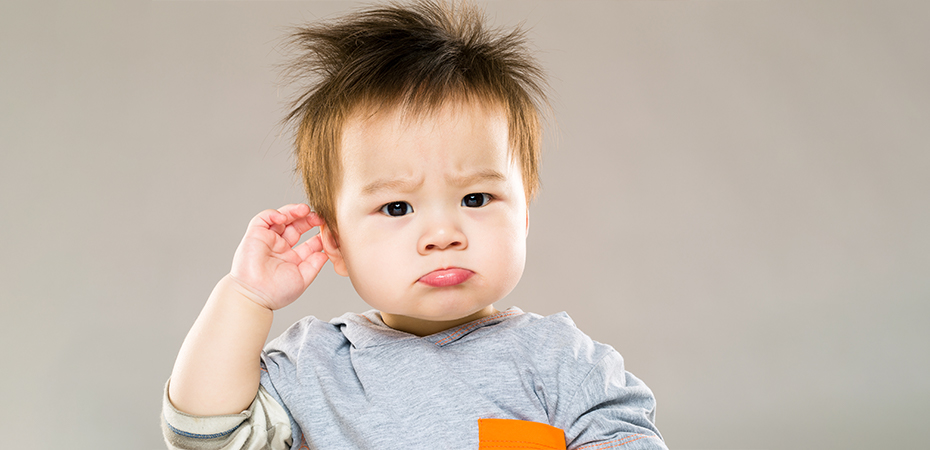
We talk a lot about different conditions babies can have over here on The Crib. Today, we’re sharing the tell-tale signs ear infections. Surprisingly, roughly three quarters of children will develop one by age 3. So, what are the symptoms anyways? Read on to find out!
Golden sign – Ear drainage pretty much guarantees your child has an ear infection. Fluid or pus is typically thick, yellow or maybe even bloody (as seen with ruptured eardrums.)
Cry me a river – Babies cry a lot, however, you may notice they’re crying a bit more than usual if they have an ear infection. Crying can be a sign for many other issues, so it’s important to seek out other signs of ear infections to confirm your suspicions.
Self-fixers – When babies or toddlers experience earaches, they may try to alleviate discomfort by pulling or tugging at it. Some babies may hit their ear as well, as they don’t fully realize the pain is coming from their ear.
Fever – A fever is sign for many infections. If your child has a fever, check them for other symptoms to rule other infections out. The most common cause of ear infections are colds, so the body has been fighting off infection way before the secretions have gotten trapped in the ear.
Sleep no more – When sleeping, the shift in pressure can often be painful or uncomfortable. This may cause your little ones to have difficulty going to sleep, especially if they are flat on their back.
“What?” – No, they aren’t being stubborn. If they have an ear infection, chances are they may actually not be able to hear you. When fluid builds up, it could cause loss of hearing. In infants and toddlers, this means they will be more unresponsive to sounds.
Right foot, left foot – Did you know the center of balance is located in the inner ear? If this area is inflamed or contains fluid buildup if could cause clumsiness.
If you think your little one could have an ear infection, do not fret! Ear infections can go away on their own or with the help of antibiotics. Unlike pesky colds, symptoms improve after a few days. If you think your child may have one, seek their pediatrician as soon as possible.
